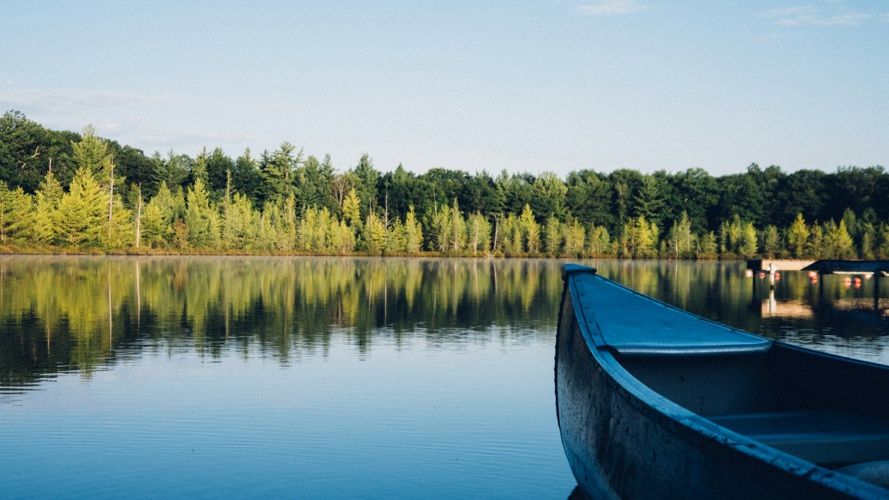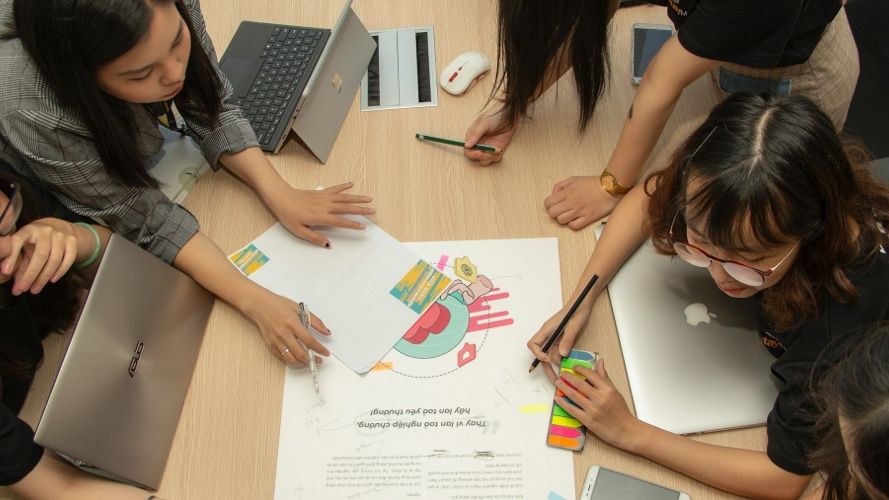Day vs overnight STEM camps: What first-time parents should know

Introduction
STEM and science camps are booming in popularity as more parents look to nurture curiosity and creativity in areas like robotics, coding, engineering, and biology. Whether your child is obsessed with space, loves to build things, or dreams of being a scientist, these camps offer hands-on discovery that inspires big thinking. In this guide, we’ll walk you through the difference between day vs overnight STEM camps to help you decide what fits best for your family - especially if you’re sending your child to camp for the first time.
Key takeaways:
- STEM camps focus on hands-on learning in science, tech, engineering, and math.
- Day STEM camps offer variety and shorter commitments, great for younger kids.
- Overnight STEM camps deepen skills, build independence, and encourage lasting friendships.
- Both formats offer excellent staff supervision and focus on camper safety.
- Use your child’s interests, age, and comfort level to guide your decision.
Table of Contents
What is a STEM / Science Camp?
STEM (Science, Technology, Engineering, and Math) camps are designed to spark curiosity and build foundational skills in science and innovation. These camps offer hands-on, project-based learning in subjects like coding, robotics, astronomy, environmental science, chemistry, engineering, and more. They're built around exploration, experimentation, and teamwork-often blending classroom-style instruction with real-world problem solving.
Many STEM camps are tailored to specific age groups or ability levels, allowing kids to explore age-appropriate challenges and discover where their interests lie. Whether building rockets, dissecting virtual frogs, programming games, or exploring marine biology, STEM campers stay actively engaged in learning disguised as fun.
Camps may focus on one subject (like a coding bootcamp or robotics challenge) or rotate through multiple STEM themes during the session. The goal is to nurture creativity, critical thinking, and confidence while showing campers the exciting possibilities of STEM fields. For some further reading, see our tech and coding camps guide.
Typical camp activities
STEM camps offer hands-on learning combined with fun exploration and teamwork. Activities typically include:
- Science experiments and engineering challenges
- Coding and robotics projects
- Outdoor STEM games and scavenger hunts
- Team presentations and problem-solving tasks
- Guest workshops and field trips
For day campers
Day camps usually have a varied schedule with shorter activity blocks to keep kids engaged. There’s time for snack breaks, outdoor play, and quick rotations through different STEM themes.
For overnight campers
Overnight camps provide opportunities for deeper exploration. Campers might spend several days on complex projects, enjoy evening astronomy sessions, and participate in STEM-themed campfires or trivia nights.
Sample daily schedule
Day camp schedule
| Time | Activity |
|---|---|
| 8:30 AM | Drop-off & icebreaker games |
| 9:00 AM | Morning STEM workshop (coding or robotics) |
| 11:00 AM | Outdoor STEM games & snack break |
| 12:00 PM | Lunch |
| 1:00 PM | Afternoon engineering project |
| 3:00 PM | STEM show & tell & pick-up |
Overnight camp schedule
| Time | Activity |
|---|---|
| 7:30 AM | Wake-up & breakfast |
| 9:00 AM | Deep-dive STEM workshop (chemistry lab) |
| 11:30 AM | Team STEM challenge or outdoor activity |
| 1:00 PM | Lunch & rest time |
| 2:30 PM | Long-form STEM project or electives |
| 5:30 PM | Dinner |
| 7:00 PM | Campfire or science trivia night |
What to expect as a parent
For day campers
You’ll be responsible for packing a daily lunch, handling transportation, and staying connected via email or app updates from the camp. Expect a morning drop-off around 8:30 AM and pick-up by 3:30 PM. Camps often provide weekly summaries and photos to keep you in the loop. Cost-wise, day camps are generally more affordable and offer flexible week-to-week sign-ups.
For overnight campers
Preparing for overnight camp is a bigger step. You’ll receive a detailed packing list, often including an overnight camp checklist. Counselors are trained to support homesickness, and many camps allow scheduled email or letter communication. Costs are higher but include lodging, meals, and 24/7 supervision. Many parents find the growth and independence their kids gain make it well worth it.
Benefits of STEM camps
Day camp benefits
Day STEM camps are a great fit for younger children or families seeking lower commitment. Kids explore new topics, stay local, and return home each night, making it easier for first-time campers. They’re also often more budget-friendly and flexible with weekly enrollments.
Overnight camp benefits
Overnight STEM camps allow campers to immerse themselves in longer projects, build lasting friendships, and develop independence. The environment often boosts self-confidence and reduces distractions, helping kids really focus on their passions. It's an excellent step for older or more experienced campers.
How to choose between day and overnight
If you're unsure which format is best for your child, start by asking: how independent is my child? Are they ready to sleep away from home? Do they need structured evenings or prefer the comfort of returning home daily? Budget, travel distance, and your own comfort level matter too. Some families even try a day camp first, then graduate to overnight the following year.
Still deciding? you can read more about day and overnight camps here:
FAQ
- What is the right age for overnight STEM camp?
- Most overnight STEM camps start at age 9 or 10. Readiness depends on the child’s comfort level, independence, and previous time away from home.
- Are STEM day camps safe for younger children?
- Yes. Many day STEM camps are designed for ages 5–12 and follow strict summer camp safety tips, including small group sizes and secure pick-up procedures.
- What should we pack for STEM overnight camp?
- Follow the camp’s overnight camp checklist. Essentials often include clothes, toiletries, bedding, flashlights, and any special items requested for activities like laptops or goggles.
- How do camps handle homesickness?
- Staff are trained to support kids through homesickness with check-ins, distraction activities, and parent communication only when necessary. Many kids adjust quickly after the first night.
Conclusion
STEM and science camps are more than just educational - they’re a gateway to creativity, problem-solving, and lifelong interests. Whether your child joins for a week of day camp or dives into a full overnight adventure, both options offer growth, fun, and friendship. Start with what feels right for your family and your child’s readiness. There’s no one-size-fits-all answer, but there’s a camp out there that fits just right.



